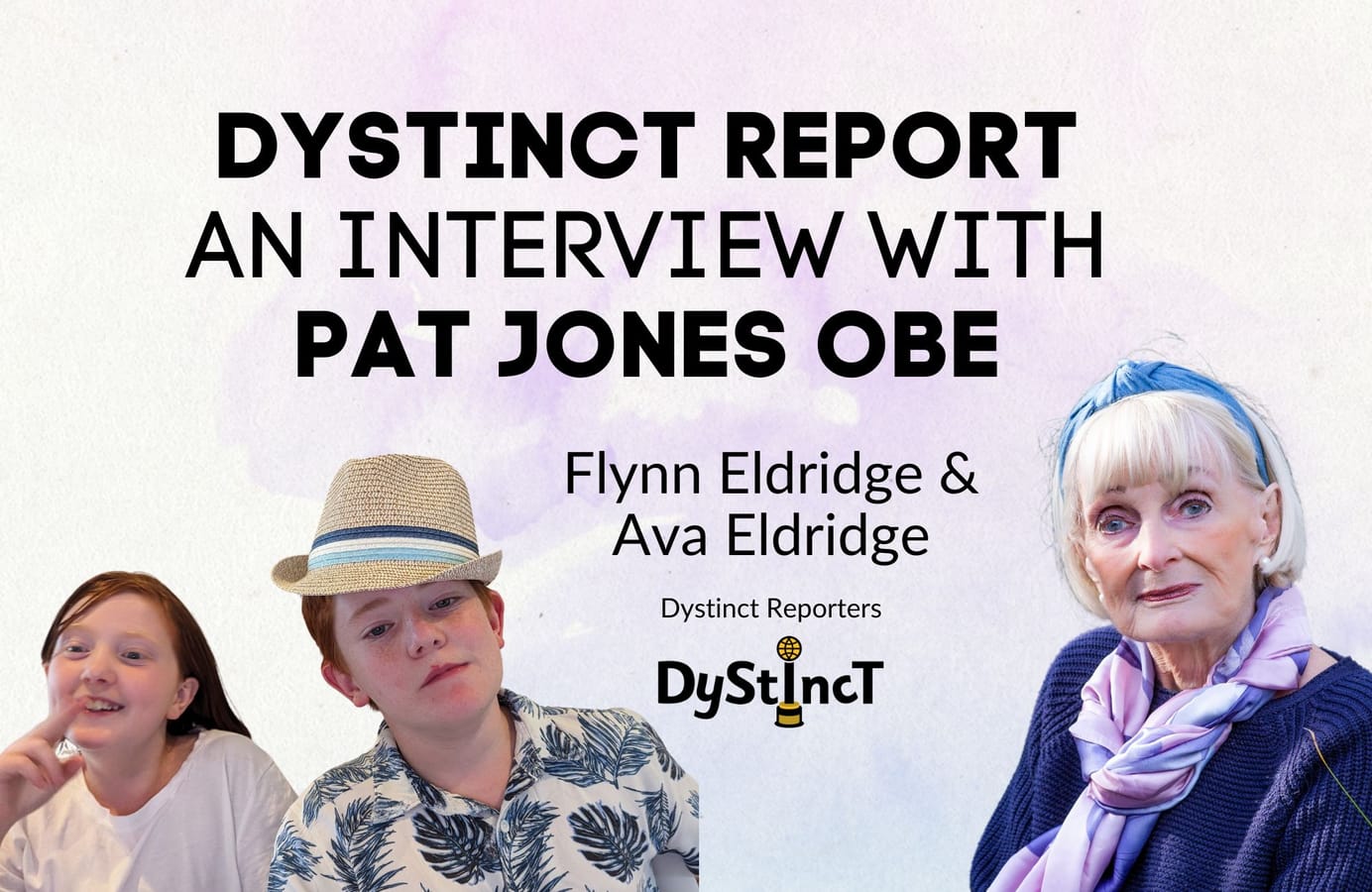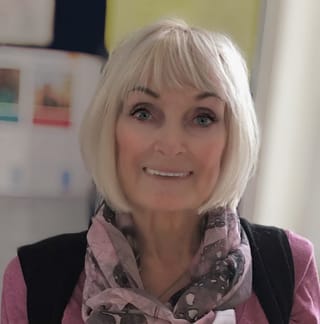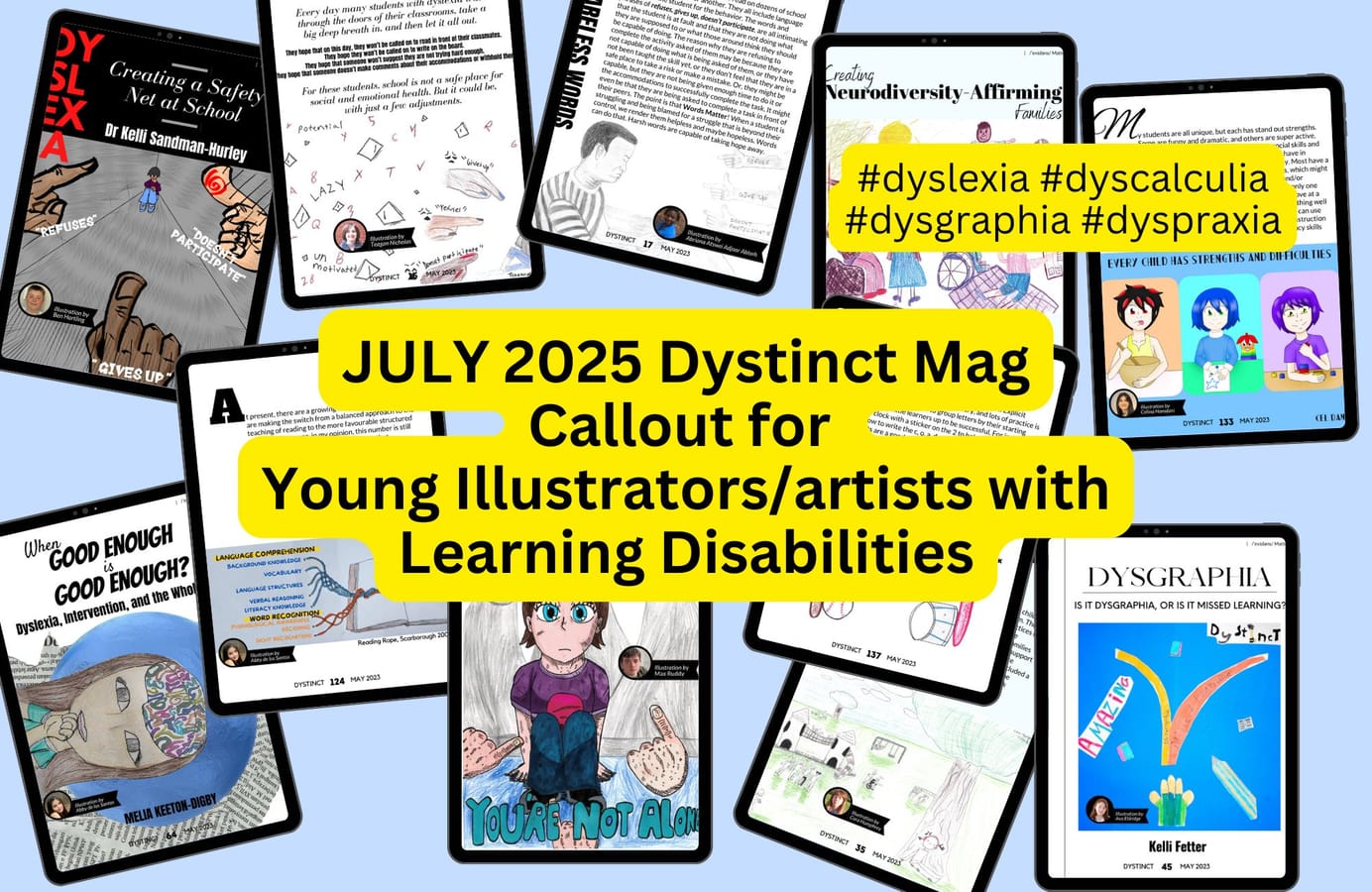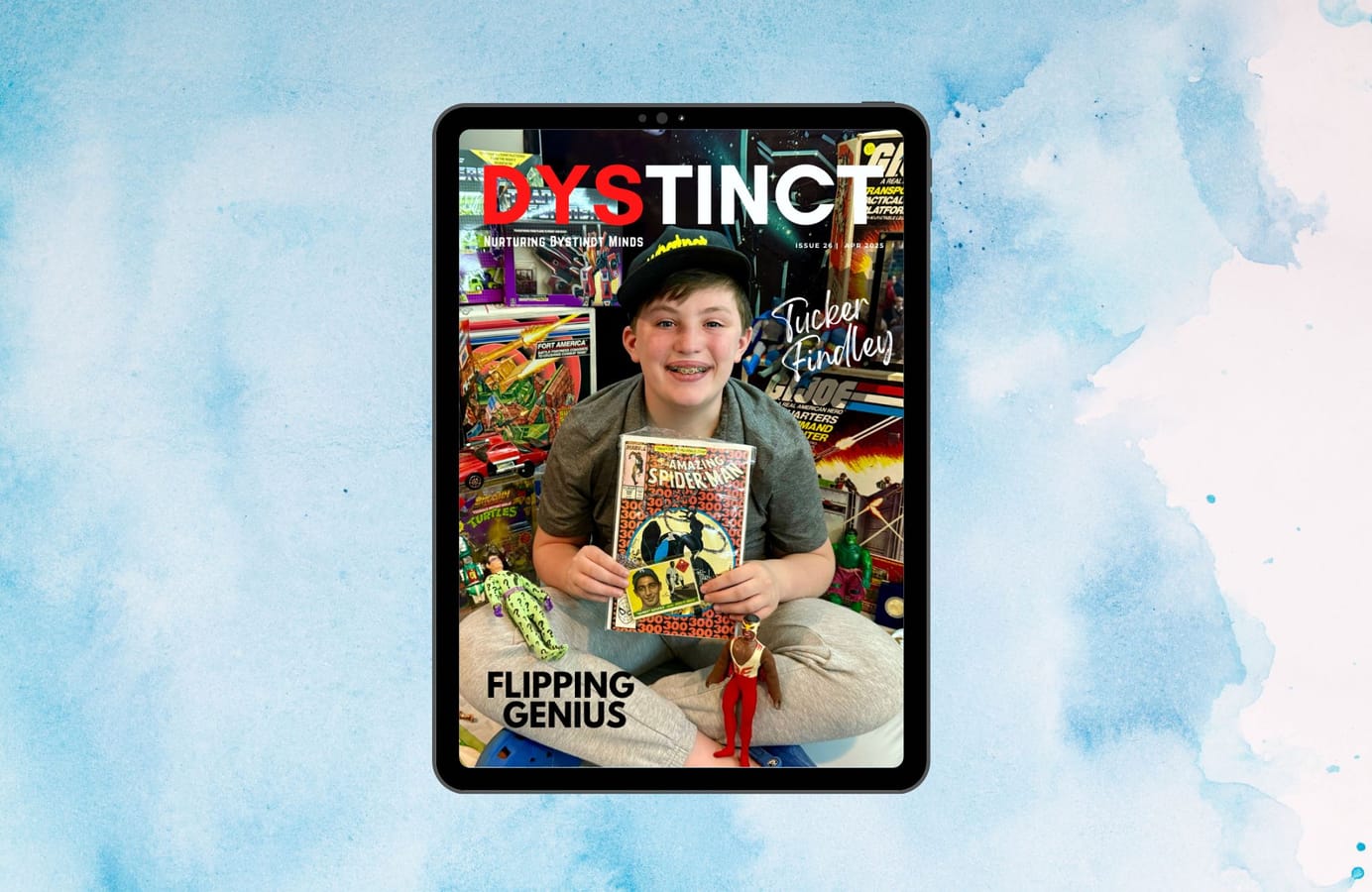
Issue 20: Dystinct Report – Flynn & Ava Eldridge’s Interview with Pat Jones
Young journalists Flynn and Ava Eldridge have a chat with Pat Jones, Founder of The Bristol Dyslexia Center and The Belgrave School, about her work and life as she prepares to enter retirement.
Table of Contents
Pat Jones was a trained teacher, but she still didn't know how to help her son, Mike. She was desperate for assistance from the school, but they could provide no support. In fact, she tried to get help for Mike at four different schools. None of them knew how to help. She learned as much as she could about dyslexia and then homeschooled Mike. Her drive to help her own children became the catalyst to starting a dyslexia support unit, then to the founding of the Bristol Dyslexia Centre in 1989 and the Belgrave School. Her services to dyslexia were recognised in 2015 when the Queen awarded her with an OBE.
Dystinct reporters Flynn and Ava Eldridge have a chat with Pat about her work and life as she prepares to enter retirement.
The Interview
The Interview
Dystinct reporter Flynn & Ava Eldridge has a chat with Pat Jones.
Excerpts from the Interview
Excerpts from the Interview
How old was Mike when you started to teach him?
I taught him a little bit because I was already a teacher, but I was teaching older children. When he was about four, I made sure that he could write his name. Although he could write Mike, he couldn't write Michael, and he couldn't write Jones. He'd write Jones, but he used to get the 's' in the wrong place. It used to turn up in all different places, and I obviously didn't do a very good job of it. I knew he was bright and would be fine at school. But when he got there, we found that he couldn't learn to read and write. And so, I found it very hard as a mum. It took me about three to four years to teach him to read because I discovered that they weren't teaching him properly in the school that I'd sent him to. And so, I decided to teach him at home. I took him out of school for about just over a year, and we worked together.
What was your favourite game to play when teaching?
My favourite game probably was Follow On in Nessy. It was a good game because it means you can tell stories, and so every time I was teaching, we'd play together, and the children would make up fantastic stories, really funny ones, and so I loved that. Michael liked Grab when he was a little boy.
Now, after teaching many, many kids with dyslexia, in your opinion, what is the best part of dyslexia and what is the worst part of dyslexia?
The best part about dyslexia is you can think outside the box. So often, dyslexics come up with brilliant ideas that no one else has thought of. Another good thing about dyslexia is that it teaches you how to be tolerant of others. Because you feel that you're having some difficulty at school, and so other people who are having difficulty at school, you can relate to that and understand them, and so it develops an understanding of other children and other people. Also, the curiosity. They're often really curious and want to know everything—a bit like you two.
The worst thing about dyslexia is school. School is the one time when you have to learn to sit and listen and remember and read and write. And it's so so difficult. It's really hard to concentrate. But school is just for a little time in your life. The time while you're at school, it feels like forever, but it's actually only a few years out of your life, and your life after school can be fantastic.
The other good thing about dyslexia is because you are at school, you have to learn what I would call 'confines.' That means to be in a box, and you have to learn structure. And in learning all about that, it makes you so much stronger than other people, and when you leave school, it's fantastic. The world is your oyster.
What are some of your highlights teaching kids with dyslexia?
Oh gosh, there are so many. There were highlights every day because we played. That's what we did during our lessons. Of course, I'm not teaching now. I retired three years ago, but I can remember all the different highlights we had: children learning to read suddenly. The highlights now that I've retired are seeing those children that I taught when they were little, and now they've grown up, and they've done amazing things. Two of them even won an Oscar at the Film Awards for making films. Other people have done really well, and my students, every now and then, even now, after all those years ago, from the 70s, they still get in touch with me and tell me what they've been doing. And that's the biggest highlight of all because it shows me that dyslexics can go on and do really, really well.
What advice do you have for parents of kids who self-advocate but face teachers and principals who think they know more about dyslexia than the parents who are well informed?
Oh, that's a tricky one because it makes you feel angry. When I was younger and was worried about my son, I went into school regularly and tried to teach them as much as I could about dyslexia. I gave them reading materials. I showed them little films. I think it wouldn't be a bad idea to show the school Mical. You just have to try to educate them. Now, that's a very difficult thing to do when you're little because it doesn't show. One of the things I used to say to teachers was, ‘Well, If my child only had one arm, you wouldn't expect him to write such a long piece of homework as everyone else because it would take him longer.’ That's what you must think of when you're talking to dyslexics.
If you could build a time machine and go back in time, where would you go and why?
I don't think I'd go back. I think I'd go forward because, with all sorts of things coming on the internet, life is so much better now than when my son was little. You can also use AI to find all sorts of ways around things. And look at the way that you can speak to me now on the computer. Fantastic! So, I think I'd go forward.
What do you get up to when you are not teaching kids?
Well, I haven't been teaching for three years, so I'm catching up on all the things that I couldn't do when I was teaching. I'm doing things like gardening, painting, and reading because I like reading. I also have two dogs, and I take them out a lot, so those are the sort of things I do now. I like sewing. I like quiet hobbies at home because I wasn't at home much before.
Tell us about your OBE experience and meeting the Queen.
The OBE was a great, great honour and was so unexpected. My parents had got together and got in touch with the Queen, and as a result, I had to go up to get the OBE. Nowadays, it's amazing when I look back on it and think about what a wonderful day it was. I actually got to meet the Queen, and she was smaller than me. She was on a little step behind her desk when I went up to meet her. I'm quite tiny, about five foot one, and she was smaller than me. And she had very blue eyes. A bit like you two - very blue eyes. and she was charming. Absolutely lovely. So, it was a great day.
I'll tell you an exciting story that happened to me. When I got there, I couldn't walk very well because I was waiting for an operation on my foot. When we got inside, there were loads of stairs to go upstairs at Windsor Castle. And I thought, ‘Oh my goodness, I'm never going to be able to get up there.’ So they allowed me to use the Queen's special lift, and only one person could go in. I went in on my own up to the top level. It was very exciting to be in the lift that the Queen had used. It was exciting seeing the castle.
Does your OBE make you a Lady Pat or Dame Pat?
No, I'm afraid it doesn't make me any of those. Do you know what they call me now? The O stands for Old, the B stands for Batty, and the E stands for Educator. Old Batty Educator. That's me!
What is a fun fact about you?
Well, one of the fun facts is that I have two dogs, one little and one large and because I can't walk very far, now I'm older, I bought myself a little disability scooter which has got four wheels, a bit like a small quad bike, and I take them out for walks on that into the woods. It goes off-road, and we've had a really good time going out there because it gets up to eight miles an hour, so the dogs really have to run. We've fallen in the ditch, we've enjoyed going over the roots of trees, all sorts of things that have been exciting. So that's one fun thing about me.
Flynn Eldridge
Dystinct Journalist | Age 10 | Dyslexia, Dysgraphia, and ADHD inattentive | Regional NSW, Australia
Flynn Eldridge
Flynn started homeschooling in 2020 as the result of the COVID-19 lockdown. Flynn homeschools because of school bullying, claustrophobia from the small space in the classroom, and anxiety from his dyslexia and dysgraphia. Flynn finds reporting fun, sometimes scary, and ultra exciting. Flynn likes to dress up as an old-time reporter and ask a range of questions, as that is his style. Flynn builds loads of different lego creations, such as the rainbow spinning-top microphone he uses in the interview. Flynn loves homeschooling because he can be finished by 2 pm and have more playtime. He learns more, his work is better quality, and Flynn is doing better than his dad at math!
Ava Eldridge
Dystinct Journalist | Age 10 | Dyslexia | Regional NSW, Australia
Ava loves art, animals, cooking, her family, playing the piano and she really enjoys reading! Her newfound love of aerial acrobatics keeps her busy. Ava had early intervention for her dyslexia. This intervention helped her be one of the best readers and writers in her class when she was in the early years of school. Ava decided to homeschool with her siblings when the pressure of 'tests' (everyday 'tests'/national testing) started to make her incredibly anxious. Ava embraces her dyslexia strengths such as her amazing long term memory and the empathy she has towards others.
Extracts from Dystinct Magazine
Extracts from Dystinct Magazine















